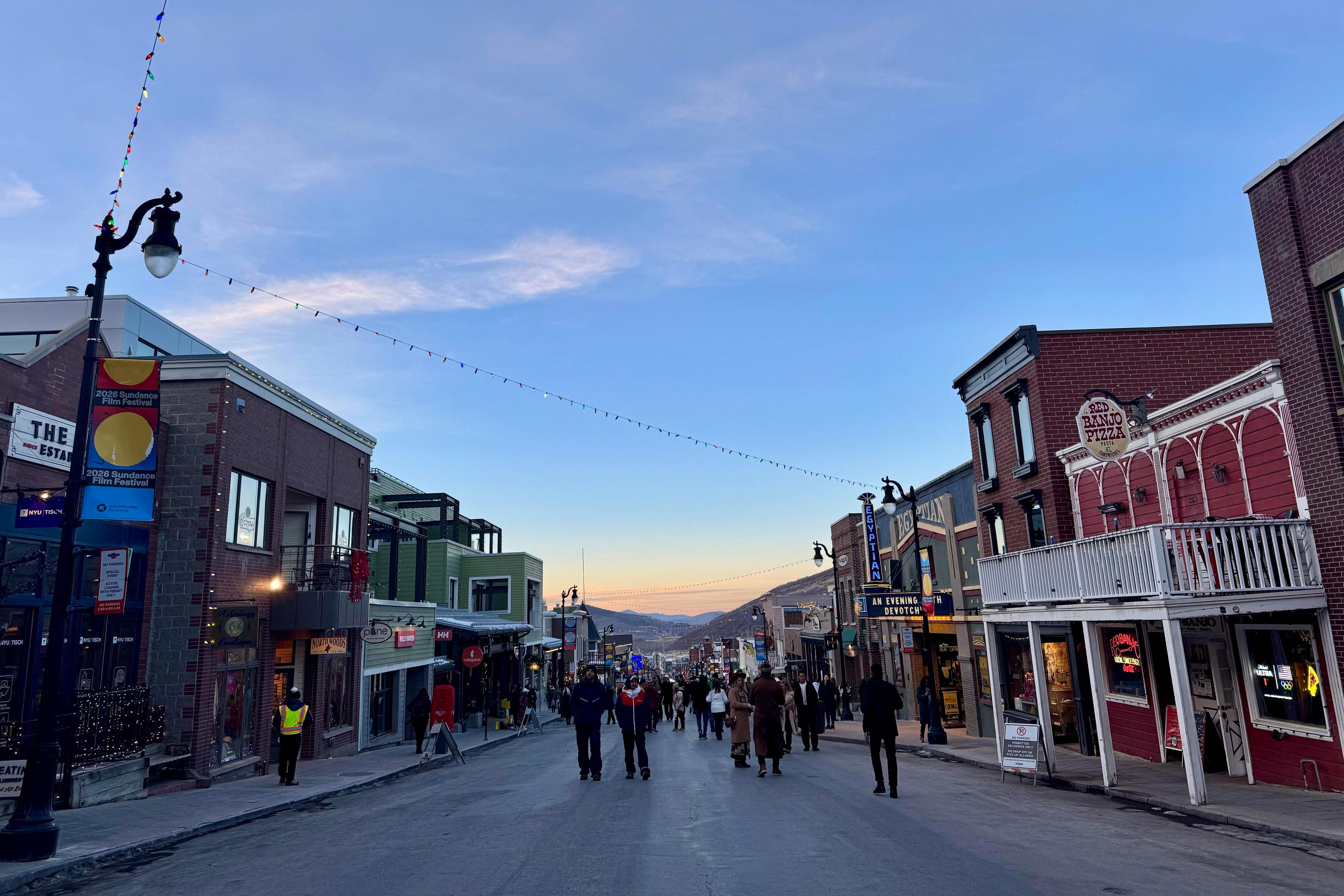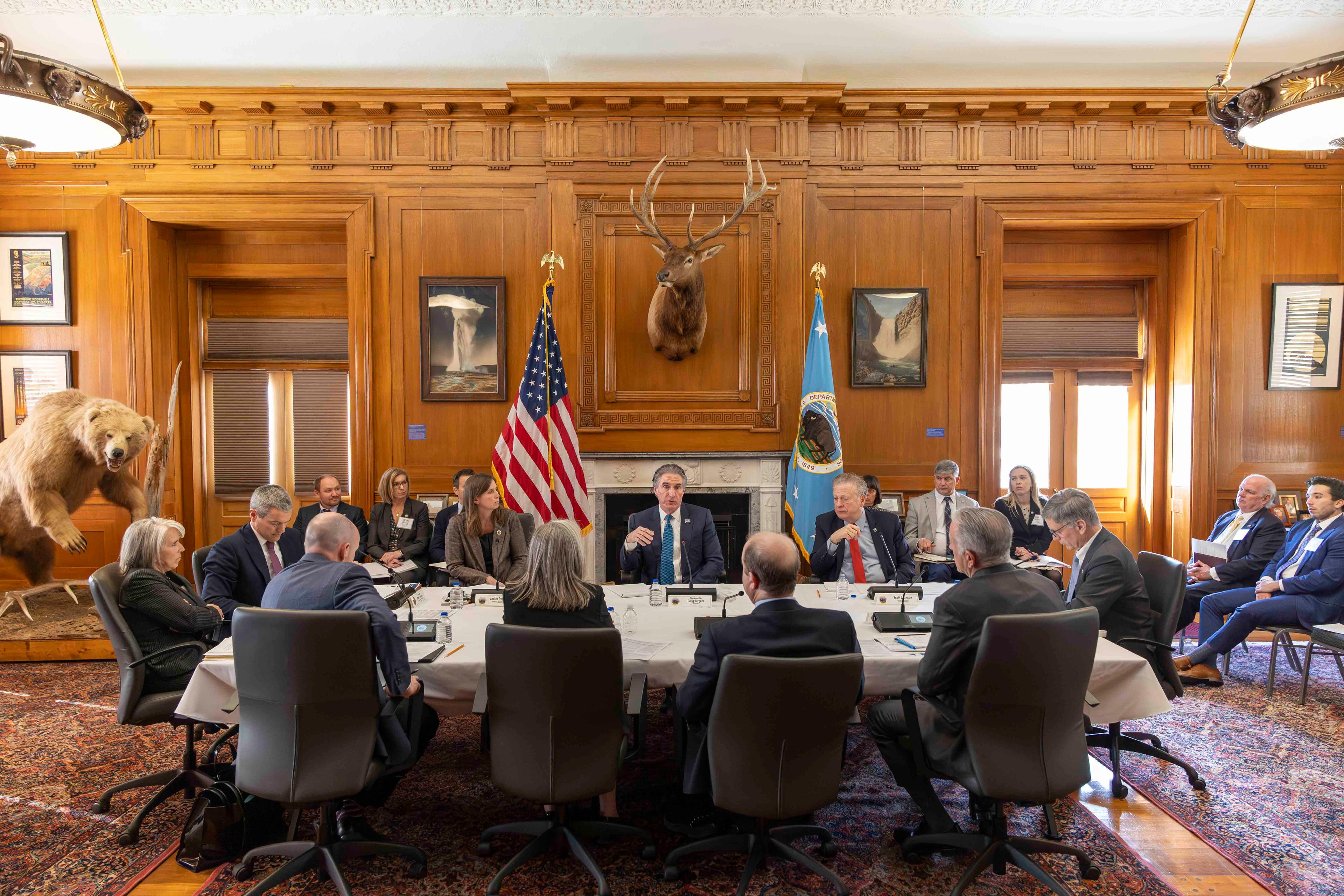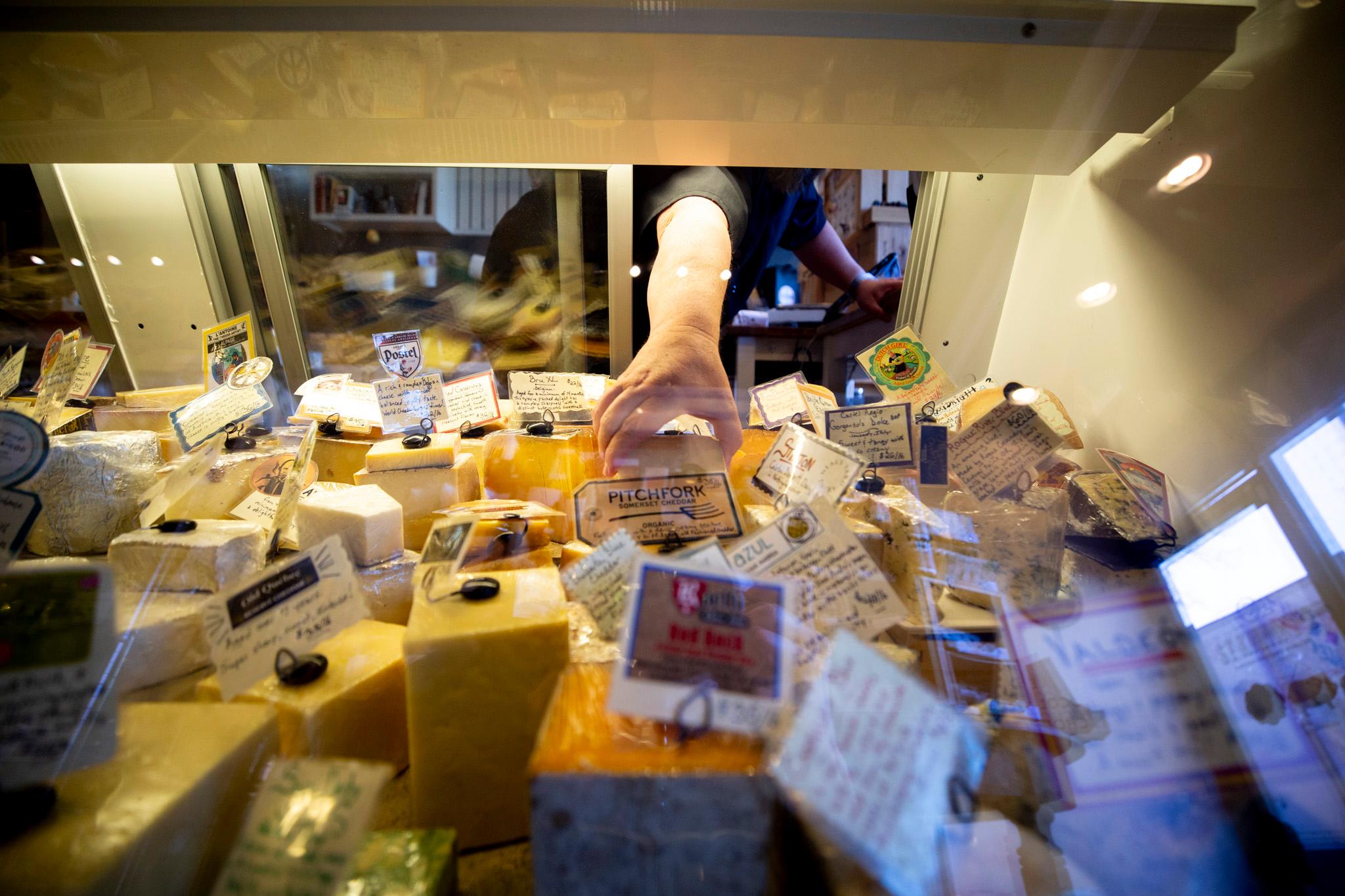
If Coloradans want something a little special for their holiday spreads this year, they’ll need to brace themselves for some serious sticker shock as President Donald Trump’s tariffs start to bite.
Consider the cost of what owner Jon Marsh calls the house cheese at St. Killian’s Cheese Shop, a specialty food store in Denver’s Highlands neighborhood. The price of Challerhocker, a firm, nutty cheese from Switzerland, is about to go up about 20%.
“We price our cheese by the pound, so that cheese … it's going to be like $45 a pound,” Marsh said.
The price hike is a direct result of Trump’s trade wars. Trump saddled Switzerland with a 39 percent tariff rate when new import taxes were announced in August, among the highest rates of any country.
Marsh stockpiled Swiss cheeses earlier this year before tariffs took effect. But that supply is almost gone. Marsh cut back on some holiday orders because of the price increases.
“We realistically don't think we can sell as much cheese from Switzerland as we would've in the past,” he said.
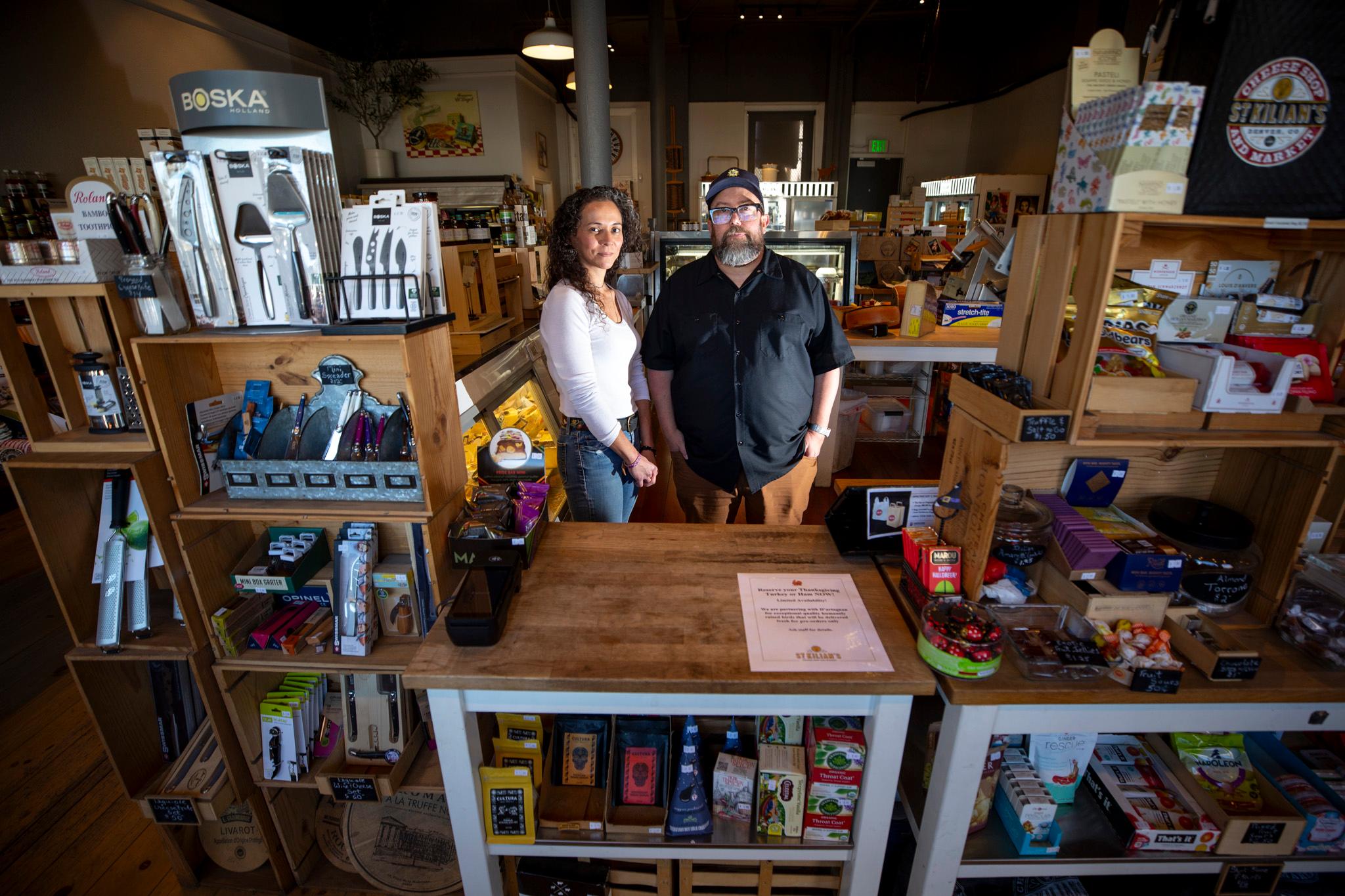
St. Killian’s experience with tariffs mirrors that of millions of small businesses across the U.S. forced to contend with Trump’s unpredictable trade policies. A group of small businesses and states is suing the Trump administration to stop the tariffs. The U.S. Supreme Court started hearing arguments in the case this week.
Swiss cheese isn’t the only thing caught up in the trade war at St. Killian’s. Products from France and Italy — think Brie and Parmesan — are subject to those countries' tariffs, which are currently 15 percent.
“Fifteen percent is no small markup,” Marsh said.
Hit to the bottom line
Customers expect to pay more when they go into a specialty shop like St. Killian’s compared to the supermarket. But even so, there’s only so much people are willing to pay for cheese. That means a direct hit to Marsh’s bottom line.
“We’ll probably do a similar dollar amount of sales, but with less volume because prices are higher,” Marsh said. “Our profitability is significantly down because there's a limit to what we can do in raising prices.”
Typically, Marsh tries to keep prices on some common cheeses like Parmesan competitive with supermarkets so that people don’t feel their products are overpriced. But that’s been difficult with tariffs, he said.
“We don't have the buying power that big chains have where they can negotiate their pricing … and demand a lower price,” he said. “We're trying to buy it because we want to support those cheese makers. We're not just looking at spreadsheets and a profit margin. We're also looking at maintaining the integrity of our business and supporting the producers, which are part of what makes us a special business.”
Tariffs target more than cheese


The price hikes aren’t limited to cheese. St. Killian’s carries a wide variety of European goods, including pasta, olive oil, balsamic vinegar, cookies, spices and sauces. All of it is subject to Trump’s tariffs.
“We've had to do more price increases this year than we've ever probably done in the whole time we've owned the shop,” said Marsh, who has owned the store for 14 years.
Not everything in the store comes from overseas. Marsh also carries items from local producers, as well as a small selection of everyday items like milk. He’s been able to keep the prices mostly stable on those items. But it’s been a struggle with import prices so out of whack. Everything on the shelves is interconnected.
“That's part of running a grocery type business,” he said. “Usually this stuff, the specialty products, is where you make your margin. So when you can't make a higher margin on this stuff because it’s getting to a point of a price people wouldn't pay, then you're forced to make more margin on milk and eggs just to make the whole thing balance and be sustainable.”.
Limited choices
If the tariffs persist, U.S. shoppers will have less choice when it comes to overseas products because it won’t be worth the hassle for producers to get it here, according to Marsh. He’s already seeing a pullback in some areas, such as a program called Adopt an Alp. It’s a program that pairs U.S. sellers with small, family run Swiss cheese producers.
Marsh made his holiday orders through Adopt an Alp in the spring, prior to Trump’s most recent trade salvo.
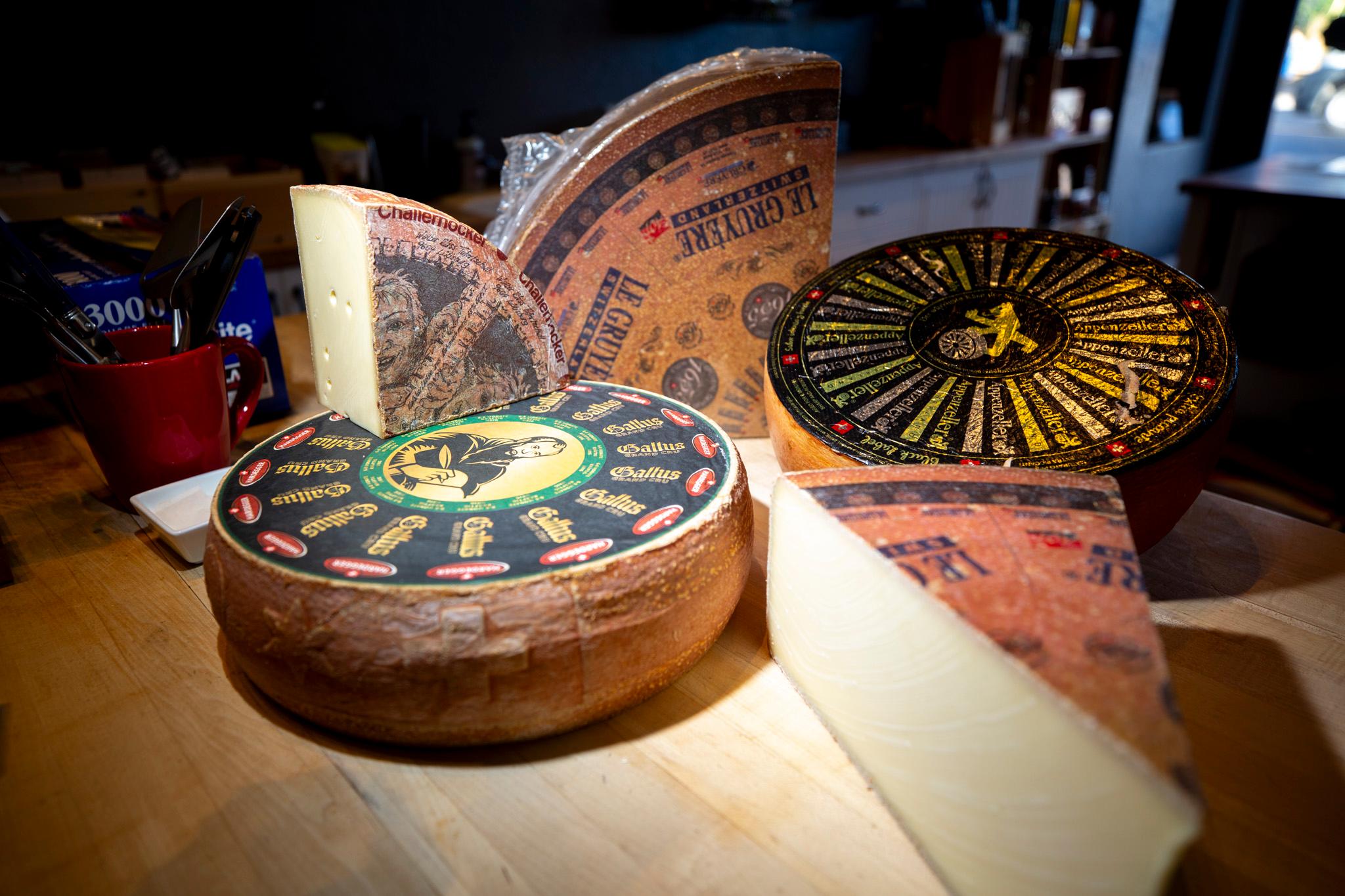
“When the 40 percent tariff hit, the importer of those cheeses put a halt to the whole program because they're like, ‘We're going to bring these cheeses in and people aren't going to pay this much of a premium,’” Marsh said.
These cheeses are already expensive because they don’t come from factories.
“We’re talking about people who practice transhumance with the cattle,” Marsh said, referencing a traditional way of raising livestock that involves rotating animals through different pastures.
But the disruption from tariffs isn’t limited to those kinds of niche producers, he said.
“It’s just throwing a big monkey wrench into the whole system,” Marsh said.



